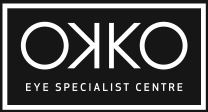Noticing signs or symptoms of your vision failing can be a scary experience to go through. But can you reverse early-stage cataracts if you address the problem quickly enough?
Unfortunately, there is no option to reverse cataracts. Still, you can do things to prevent cataracts and potentially slow the speed at which they progress. Keep reading to learn what methods are available to treat your cataracts.
What are cataracts, and how do they progress?
Aging is the cause of many age-related diseases, such as cataracts. However, most people do not know that cataracts are the leading cause of blindness in older adults. They affect nearly a million Australians every year.
A cataract occurs when there is a buildup of proteins in the lens, creating protein clumps. These clumps prevent light from passing clearly through the lens, thus causing impaired vision. Cataracts may start as early as age 40.
You are more prone to developing cataracts if you have a family history, smoke, have diabetes, or use corticosteroid medications over a long period of time. In addition, lack of care in proper protection for your eyes is another factor that puts you at a higher risk of cataracts.
A cataract is not something that often appears overnight. Instead, it is slow in progression. You may not be aware that there is a change in your vision at first. However, as time passes, you will notice a difference in vision as more of the lens becomes cloudy.
The progression of a cataract will vary from person to person. It may even be different between each eye. Many people believe it’s best to hold out until their cataracts get worse before undergoing treatment. However, it’s easier to treat cataracts during the early stages. There are often fewer complications and less difficulty removing the cataract.
What are the symptoms of cataracts?
Aside from blurred vision, cataracts can make your eyes sensitive to light and glare and cause you to see double. As a result, you may have difficulty reading, identifying faces, driving (especially at night), or seeing fine details. In addition, colours may start to look less vibrant and appear faded. You may also find you have to change your eye prescription often. If you notice any of these problems, you should consider getting an eye exam.
How can I reduce my risk of developing cataracts?
It’s crucial to get frequent eye exams to check your eye health and screen for signs. But, of course, what you put in your body plays a crucial role too. You should quit smoking, lower alcohol intake and eat a healthy diet. Focus on fruits and vegetables high in antioxidants like vitamin A, vitamin C, vitamin E, and lutein. If you have other health problems like hypertension, you should work to manage them.
Protect your eyes from the environment and avoid places with heavy pollution. You should wear sunglasses to shield your eyes from the sun and put on protective glasses if you’re in a situation where your eyes are at risk of foreign objects.
Can you use eye drops to treat cataracts?
While there are no natural treatment options for cataracts, you may find some improvement with sterol eye drops. Sterol is a substance that can reorganize protein in the eye and may increase lens transparency.
Eye drops containing N-acetyl carnosine may also improve visual acuity, though it is not a complete reversal. Keep in mind, using these eye drops is not something that will work for everyone.
Can early-stage cataracts be reversed with surgery?
Cataracts can result in partial or total blindness, but it’s not a permanent complication. There is more than one type of cataract surgery, so you should spend time figuring out which will be best for you. For example, standard and lifestyle cataract surgery involves removing the cataract with a manual incision to the eye. The surgeon then replaces the cloudy lens with an artificial lens. With the standard option, you will receive a monofocal lens that is fixed for one distance. This is ideal for those who already wear glasses and do not mind wearing glasses after surgery.
Those who opt for lifestyle cataract surgery will receive a premium lens that can provide good distance and mid-range vision. This option is ideal for those who prefer wearing glasses on an occasional basis.
Laser cataract surgery is unlike the other two methods. Here, the surgeon performs many aspects of the cataract procedure using a laser. This comes with a higher level of precision, and it is considered marginally safer than standard and lifestyle cataract surgery[mfn]Chang, J.S.M., Chen, I.N., Chan, W.-M., Ng, J.C.M., Chan, V.K.C. and Law, A.K.P. (2014). Initial evaluation of a femtosecond laser system in cataract surgery. Journal of Cataract & Refractive Surgery, 40(1), pp.29–36.[/mfn]. In addition to the premium lenses, the surgeon can also perform a laser enhancement to reduce your dependence on glasses and contact lenses for all activities, including reading. You will not have to pay extra for this enhancement. It’s added to the overall cost of the surgery.
Restore your vision at OKKO
Believe it or not, there are plenty of things you can do to help restore your vision when dealing with cataracts. The earlier you notice the issue and correct it, the longer you can enjoy life with better vision.
Can early-stage cataracts be reversed? Absolutely. Rather than wonder and wait, you can contact OKKO and book a consultation. You’ll speak with one of our experienced doctors. They will evaluate and help you select the best cataract surgery for you. We have two convenient clinics in Brisbane.







